 W
W5 A Day Adventures is an edutainment computer product developed by eMotion Studios.
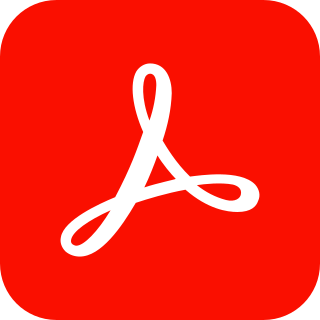 W
WAdobe Acrobat is a family of application software and Web services developed by Adobe Inc. to view, create, manipulate, print and manage files in Portable Document Format (PDF).
 W
WAdobe After Effects is a digital visual effects, motion graphics, and compositing application developed by Adobe Systems and used in the post-production process of film making, video games and television production. Among other things, After Effects can be used for keying, tracking, compositing, and animation. It also functions as a very basic non-linear editor, audio editor, and media transcoder. In 2019, the program won an Academy Award for scientific and technical achievement.
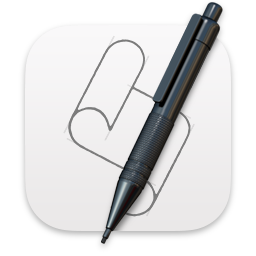 W
WAppleScript is a scripting language created by Apple Inc. that facilitates automated control over scriptable Mac applications. First introduced in System 7, it is currently included in all versions of macOS as part of a package of system automation tools. The term "AppleScript" may refer to the language itself, to an individual script written in the language, or, informally, to the macOS Open Scripting Architecture that underlies the language.
 W
WThe Arena browser was one of the first web browsers for Unix. Originally begun by Dave Raggett in 1993, development continued at CERN and the World Wide Web Consortium (W3C) and subsequently by Yggdrasil Computing. As a testbed browser, Arena was used in testing the implementation for HTML version 3.0, Cascading Style Sheets (CSS), Portable Network Graphics (PNG), and libwww. Arena was widely used and popular at the beginning of the World Wide Web.
 W
WElastic Reality was a warping and morphing software application available on Windows, Macintosh, Silicon Graphics workstations and Amigas and was discontinued in 1999.
 W
WCello is an early, discontinued graphical web browser for Windows 3.1; it was developed by Thomas R. Bruce of the Legal Information Institute at Cornell Law School. It was released as shareware in 1993. While other browsers ran on various Unix machines, Cello was the first web browser for Microsoft Windows, using the winsock system to access the Internet. In addition to the basic Windows, Cello worked on Windows NT 3.5 and with small modifications on OS/2.
 W
WThe Common Desktop Environment (CDE) is a desktop environment for Unix and OpenVMS, based on the Motif widget toolkit. It was part of the UNIX 98 Workstation Product Standard, and was for a long time the "classic" Unix desktop associated with commercial Unix workstations.
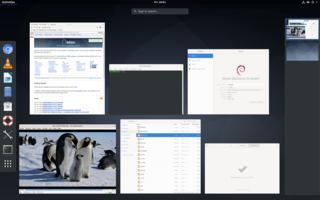 W
WDebian, also known as Debian GNU/Linux, is a Linux distribution composed of free and open-source software, developed by the community-supported Debian Project, which was established by Ian Murdock on August 16, 1993. The first version of Debian (0.01) was released on September 15, 1993, and its first stable version (1.1) was released on June 17, 1996. The Debian Stable branch is the most popular edition for personal computers and servers. Debian is also the basis for many other distributions, most notably Ubuntu.
 W
WEggdrop is a popular IRC bot and the oldest still being maintained.
 W
WMicrosoft Encarta was a digital multimedia encyclopedia published by Microsoft Corporation from 1993 to 2009. Originally sold on CD-ROM or DVD, it was also available on the World Wide Web via an annual subscription, although later articles could also be viewed free online with advertisements. By 2008, the complete English version, Encarta Premium, consisted of more than 62,000 articles, numerous photos and illustrations, music clips, videos, interactive content, timelines, maps, atlases and homework tools.
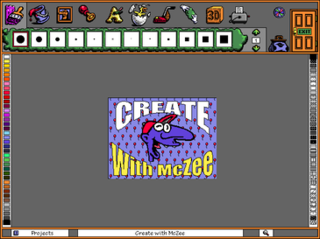 W
WFine Artist is a raster graphics editor program created by Microsoft Kids in 1993. Using this program, it is possible to create paintings. The interface and environment is especially targeted towards children and is set in Imaginopolis with the main helper being a character known as McZee. Fine Artist was announced by Microsoft on 7 December 1993 and was released in 1994. It ran on both MS-DOS 3.2 and the Windows 3.1 operating system. A version for Apple Macintosh was also released. Fine Artist is discontinued, but can still be acquired from online stores and auction websites such as eBay.
 W
WForever Growing Garden is an educational video game developed by Communication Wave and published by Media Vision in 1993. The game has a simple interface for easy seeding, watering and growing of plants in three different locations. The game is programmed so that the growing process can continuously occur even when the computer is off. A French version of the game was also released with the title "Le Jardin Enchanté".
 W
WFreeBSD is a free and open-source Unix-like operating system descended from the Berkeley Software Distribution (BSD), which was based on Research Unix. The first version of FreeBSD was released in 1993. In 2005, FreeBSD was the most popular open-source BSD operating system, accounting for more than three-quarters of all installed simply, permissively licensed BSD systems.
 W
WGoldWave is a commercial digital audio editing software product developed by GoldWave Inc, first released to the public in April 1993.
 W
WMeVisLab is a cross-platform application framework for medical image processing and scientific visualization. It includes advanced algorithms for image registration, segmentation, and quantitative morphological and functional image analysis. An IDE for graphical programming and rapid user interface prototyping is available.
 W
WMicrosoft Visual C++ (MSVC) is a compiler from Microsoft for the C, C++, and C++/CLI programming languages. MSVC is proprietary software; it was originally a standalone product but later became a part of Visual Studio and made available in both trialware and freeware forms. It features tools for developing and debugging C++ code, especially code written for the Windows API, DirectX and .NET.
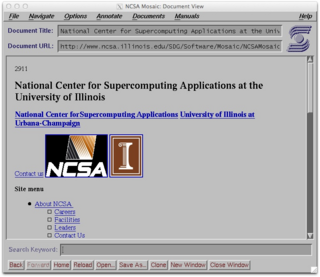 W
WNCSA Mosaic is one of the first web browsers. It was instrumental in popularizing the World Wide Web and the general Internet by integrating multimedia such as text and graphics. It is a client for earlier internet protocols such as File Transfer Protocol, Network News Transfer Protocol, and Gopher. It was named for its support of multiple Internet protocols. Its intuitive interface, reliability, personal computer support, and simple installation all contributed to its popularity within the web. Mosaic is the first browser to display images inline with text instead of in a separate window. It is often described as the first graphical web browser, though it was preceded by WorldWideWeb, the lesser-known Erwise, and ViolaWWW.
 W
WMicrosoft Anti-Virus (MSAV) was an antivirus program introduced by Microsoft for its MS-DOS operating system. The program first appeared in MS-DOS version 6.0 (1993) and last appeared in MS-DOS 6.22. The first version of the antivirus program was basic, had no inbuilt update facility and could scan for 1,234 different viruses. Microsoft Anti-Virus for Windows (MWAV), included as part of the package, was a front end that allowed MSAV to run properly on Windows 3.1x.
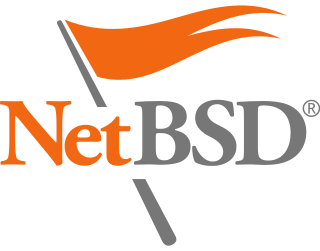 W
WNetBSD is a free and open-source Unix-like operating system based on the Berkeley Software Distribution (BSD). It was the first open-source BSD descendant officially released after 386BSD was forked. It continues to be actively developed and is available for many platforms, including servers, desktops, handheld devices, and embedded systems.
 W
WNewton OS is a discontinued operating system for the Apple Newton PDAs produced by Apple Computer, Inc. from 1993–1997. It was written entirely in C++ and trimmed to be low power consuming and use the available memory efficiently. Many applications were pre-installed in the ROM of the Newton and to save on RAM and flash memory storage for user applications.
 W
WPTS-DOS is a disk operating system, a DOS clone, developed in Russia by PhysTechSoft and Paragon Technology Systems.
 W
WSecond Reality is an IBM PC compatible demo created by Future Crew. It debuted at the Assembly 1993 demoparty on July 30, 1993, where it was entered into the PC demo competition, and finished in first place with its demonstration of 2D and 3D computer graphics rendering. The demo was released to the public in October 1993. It is considered to be one of the best demos created during the early 1990s on the PC; in 1999 Slashdot voted it one of the "Top 10 Hacks of All Time". Its source code was released in a GitHub repository as public domain software using the Unlicense on the 20th anniversary of the release on 1 August 2013.
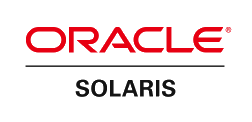 W
WSolaris is a proprietary Unix operating system originally developed by Sun Microsystems. It superseded the company's earlier SunOS in 1993. In 2010, after the Sun acquisition by Oracle, it was renamed Oracle Solaris.
 W
WSoundApp is a freeware audio player for the Classic Mac OS. It was among the earliest MP3 players for the Classic Mac OS, and was widely praised for its ability to play back, and convert between, a variety of audio file formats.
 W
WWindows NT 3.1 is an operating system that was produced by Microsoft as part of the Windows NT family of operating systems. It was released on July 27, 1993.
 W
WWine is a free and open-source compatibility layer that aims to allow application software and computer games developed for Microsoft Windows to run on Unix-like operating systems. Wine also provides a software library, known as "Winelib", against which developers can compile Windows applications to help port them to Unix-like systems.
 W
WWordPerfect (WP) is a word processing application, now owned by Corel, with a long history on multiple personal computer platforms. At the height of its popularity in the 1980s and early 1990s, it was the dominant player in the word processor market, displacing the prior market leader WordStar.
 W
WZipIt is a shareware data compression utility for archiving and compressing files on the Classic Mac OS and Mac OS X platforms. It was designed to be highly compatible with PKZIP on MS-DOS machines, reading and writing those files as well as performing any necessary line ending conversion or MacBinary encoding to ensure the files were usable on both platforms. It had an advanced user interface and offered a number of automation features, including AppleScript support. First released in 1993, the latest version of ZipIt is version 2.2.2, released in late 2002.